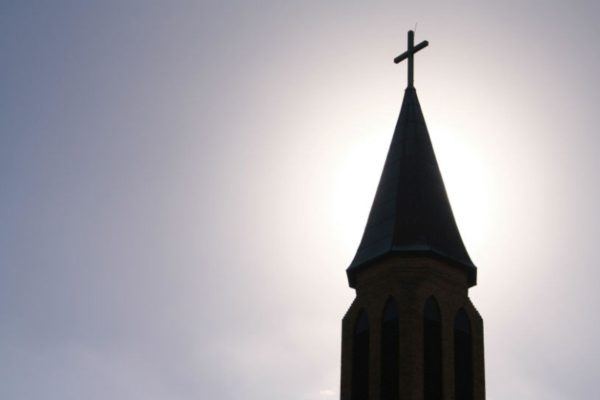In America, it is easy to forget. At a political moment when black evangelicals leaving white controlled churches is headline news, it is important to remember this. In fact, it has happened before, over and over again. It is more than a political moment. It is a historical pattern.
This matters because the majority of white Christians still believe their churches are open to nonwhites. Yet, as black members leave once again, it is obvious that many feel otherwise.
If this pattern is ever going to change, white churches have to acknowledge racial history. They have to understand why blacks have left white churches and why they continue to do so.
For example, Richard Allen, a freed slave, attended St. George’s Methodist Church in Philadelphia from 1786 to 1792. He would have stayed longer, but white members wouldn’t let him. During the middle of a service, they dragged Allen and fellow Methodist preacher Absalom Jones, also a former slave, from the whites-only seating to the back of the church.
Unwelcome as an equal member, Allen left the white-controlled church. He then founded an independent black Methodist congregation and later worked to organize the African Methodist Episcopal Church, an influential Protestant denomination. In other words, Allen was a Methodist, and he became a black Methodist only because whites forced him to do so.
In the 1830s, after two major efforts by slaves to gain their freedom (a plot by Denmark Vesey and an uprising led by Nat Turner), whites forced blacks to worship in their churches and required any black religious gathering to be supervised by a white minister. Whites were afraid of losing control and afraid that independent black religious gatherings were a place where slaves could organize and challenge that control.
For three decades, from the 1830s to the 1860s, evangelical churches in the South were technically interracial but by no means integrated or inclusive. After the Civil War, African Americans left those churches for their own independent congregations free from white control.
Today, when pluralism and multiculturalism are self-professed progressive values, and Sunday is still the most segregated day of the week, we should recognize the sociological fact and historical reality that whites will support inclusive practices so long as they feel in charge.
This is true of interracial churches, as it is true of American society. To be surprised when blacks leave white evangelical churches is to forget how patterns of racial inequality persist, not despite religious civility and good intentions, but because of them.
What happened to Richard Allen at St. George’s Methodist Church in 1792 may not happen anymore in evangelical churches. But it happens all too often outside the church, as a disproportionate number of African Americans are forcibly removed from communities, families, homes and workplaces, denied political and legal representation, and placed at the edges of society in prisons, shelters, and on streets and stretchers.
That white churches are reconciled with that reality should surprise only those who forget that this has happened before.
Will the historical pattern ever change?
Not until whites, whether evangelical or liberal, conservative or progressive, give up control. Not until they confess, “This is not about me.” Not until they let go of their religious fear of moral wrong. Not until they stop explaining away the fact that African American men have a 1-in-3 chance of going to prison by saying black communities lack family values. Not until they identify the systems of oppression that have torn apart black families, from slavery to convict leasing, from Jim Crow to mass incarceration. Not until they stop, listen and learn about the racial history of the United States. Not until they admit these things happened rather than actively forget them.
In the meantime, those who can, the willing and able, shall say what they mean, even when the majority hears no more than they already know. Because they might not be in your church, but that doesn’t mean they aren’t here.
Chad Seales is an associate professor of religious studies at The University of Texas at Austin.
A version of this op-ed appeared in the San Antonio Express News, Amarillo Globe News, Corpus Christi Caller Times, and the Austin American Statesman.
To view more op-eds from Texas Perspectives, click here.
Like us on Facebook.




